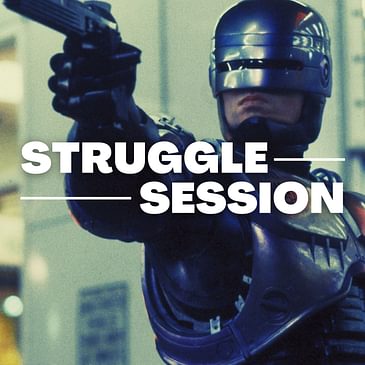Have a favorite from our list? Want to share a take? Send us an email or voice message to thestrugglesession+mailbag@gmail.com
https://www.mattbors.com/
https://thebenclarkson.com/
http://sesh.show http://jack.lol
https://msha.ke/lleeiii
Cops of the Future List:
- Demolition Man
- Time Cop
- Predator 2
- Judge Dredd
- Marshall Law
- Robocop
- A Clockwork Orange
- The One
- Minority Report
- Mad Max
- A Scanner Darkly
- The Expanse
- Blade Runner
- Soylent Green
- Virtuosity
- Alien Nation
- Logan's Run
- Men in Black
- Equilibrium
- Riddick
- Brave New World
- Marshal Law
Become a supporter of this podcast: https://www.spreaker.com/podcast/struggle-session--5842028/support.
